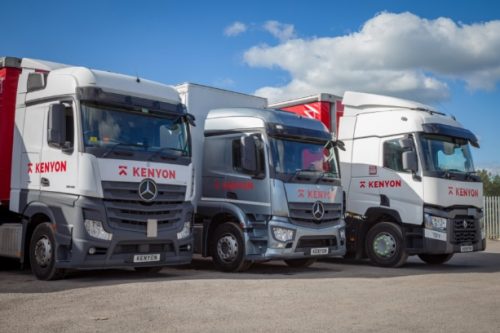Haulage firm’s collapse cost 108 jobs on appointment of administrator

More than 100 staff at a Blackburn haulier have lost their jobs after it fell into administration.
Kenyon’s Haulage, founded in 1933, has ceased trading. Administrators were appointed on March 20 and made 90 of its 97 road haulage staff redundant, as well as 18 of 22 warehousing staff.
The company was acquired by Graham Darnell, who also owns Blackburn-based John Truswell and Sons, in 2016.
A staff member, who wished to remain anonymous, said the staff were called to a meeting the day restructuring specialist Kroll was appointed, and told the devastating news.
The employee said there were signs the company was struggling, claiming drivers had not been reimbursed for fuel they had purchased or their last week’s wages.
A spokesperson for the Manchester office of Kroll Advisory said: “Michael Lennon and Steven Muncaster of Kroll were appointed as administrators to Kenyon Road Haulage Limited and Kenyon Warehousing Limited yesterday (March 20).
“Due to the financial position of the entities both companies ceased to trade upon the appointment of administrators with 90 of the 97 road haulage and 18 of the 22 warehousing employees being made redundant.
“The remaining staff have been retained by the administrators to assist with their duties and wind down operations.”
In 2021, the company’s net worth was valued at £2.363m.
It had an international licence authorising it to operate 82 HGVs out of three depots in the North West and 12 out of an operating centre in Andover.
Its last accounts filed for the year ending July 2021, revealed an £87,000 pre-tax loss – on almost £14m sales – compared with a pre-tax profit of £98,000 the previous year.
The business blamed the impact of the pandemic, saying: “With customers temporarily closing due to COVID, the business focused its efforts on its internet-based customers who flourished during this time.
“Regrettably, this changed the dynamic of its delivery profile from mainly B2B to B2C.
“The result was a surge in small consignments to homes. This meant the delivery vehicles had to complete more deliveries to maintain turnover levels.
“It is not always possible for delivery vehicles to complete their scheduled deliveries due to the number of deliveries they have to make.”
It added that driver wage costs had increased by 40% and negotiations with customers to increase rates had taken time to finalise.





